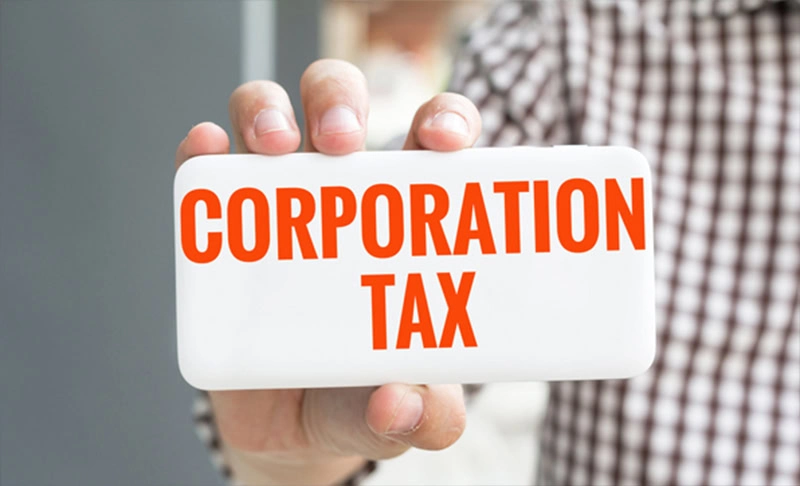The introduction of corporate tax within the UAE has bought considerable changes for foreign-owned businesses operating within the country. Understanding how this new tax regime impacts those businesses is crucial, and consulting with corporate tax experts in Dubai has come to be vital for powerful compliance and strategic planning.
Overview of UAE Corporate Tax for Foreign-Owned Businesses
Effective from June 1, 2023, the UAE corporate tax law imposes a federal corporate tax at a standard rate of 9% on taxable income exceeding AED 375,000. This tax applies to all businesses, which include foreign-owned companies that have a permanent establishment (PE), a place of effective management, or UAE-sourced income. Foreign companies are now taxed similarly to domestic companies, with a few exceptions for multinational businesses challenging the OECD’s Pillar Two of minimal tax rules.
Tax Residency and Scope of Taxation
An foreign company is considered as a UAE tax resident if its incorporated are within the UAE or if its vicinity of effective management and control is within the UAE. This approach oversees foreign-owned businesses with control selections made within the UAE that fall under the corporate tax regime and are taxed on their world income. Non-resident companies with a permanent establishment within the UAE are taxed on income attributable to that establishment, which includes UAE-sourced income.
Impact on Foreign-Owned Business Structures
Foreign businesses usually perform within the UAE through constrained legal responsibility of companies (LLCs), branches, or permanent establishments. LLCs are separate legal entities taxed independently, while branches and PEs are handled as extensions of the parent-company and taxed on UAE-sourced income only. This distinction affects how foreign-entities plan their presence and tax responsibilities within the UAE.
Free Zones and Tax Exemptions
Many foreign-owned businesses perform in UAE free-zones, which historically supplied tax incentives. Under the brand-new corporate tax regulation, free area entities can benefit from exemptions if they agree to regulatory necessities and no longer conduct business with the UAE mainland. Corporate tax experts in Dubai assist overseas businesses in navigating those situations to preserve their tax-exempt status and avoid penalties.
Double Taxation and Foreign Tax Credits
To mitigate double taxation on foreign income, the UAE corporate tax regulation presents participation exemptions and overseas department earnings exemptions, in addition to overseas tax credits for taxes paid in foreign places on profits now no longer exempt under UAE law. Corporate tax experts in Dubai play a critical position in making use of those provisions correctly, making sure that foreign-owned businesses optimize their tax liabilities and avoid unnecessary taxation.
Role of Corporate Tax Consultants in Dubai
Given the complexity of the UAE’s new corporate tax regime, foreign-owned businesses increasingly depend on corporate tax experts in Dubai. These specialists offer vital offerings, which include
- Assessing tax residency status and permanent establishment risks
- Advising on tax-green enterprise systems and transactions
- Ensuring compliance with submission and documentation necessities
- Navigating free-zone exemptions and mainland enterprise interactions
- Applying overseas tax credits and exemptions to lessen tax burdens
- Preparing for the effect of worldwide tax reforms, which includes OECD Pillar Two.
Dubai corporate tax experts carry specialized understanding of each federal and emirate-level tax rule, supporting foreign-businesses to adapt to the evolving regulatory surroundings and preserve competitiveness.
Conclusion
The UAE corporate tax regulation substantially impacts foreign-owned businesses with the aid of broadening tax responsibilities on UAE and foreign income, redefining tax residency, and changing the treatment of branches and free-zone entities. Engaging corporate tax experts in Dubai is important for those businesses to apprehend their tax liabilities, observe the regulations, and enforce powerful tax strategies. Their knowledge and expertise guarantee that foreign-owned companies can optimize tax performance even while complying with the UAE’s new corporate tax framework, positioning them for sustainable growth within the region.
FAQs
Do foreign-owned businesses pay UAE Corporate Tax?
Yes, if they have a permanent establishment or source of income in the UAE.
Are free zone companies owned by foreigners exempt from tax?
They may qualify for a 0% rate if they meet qualifying free zone requirements.
What is the UAE Corporate Tax rate for foreign businesses?
The standard rate is 9% on taxable income exceeding AED 375,000.
Does passive income of foreign entities attract UAE tax?
Yes, certain UAE-sourced passive income like interest and royalties may be taxable.





